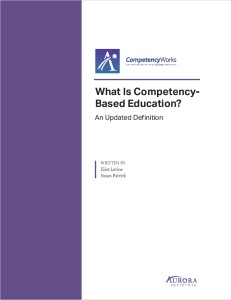Competency-based learning is emerging as a transformative approach in education, driven by educators nationwide. At its core, this methodology shifts the focus from traditional classroom hours to a student’s demonstrated mastery of specific learning outcomes. Instead of simply tracking time spent in a classroom, competency-based education prioritizes actual learning, aiming to equip every student for success in today’s increasingly interconnected and competitive global landscape.
This educational model represents a significant evolution in school culture, structure, and teaching methods. It directly addresses the limitations of conventional education by ensuring every student achieves success. Schools and districts are adopting competency-based learning for various compelling reasons, including enhancing learning effectiveness, promoting equity, fostering deeper understanding, and establishing a framework for continuous improvement in educational practices.
Year after year, competency-based education is being integrated more deeply into a growing number of schools and districts. Reflecting this momentum, a majority of states have implemented policy adjustments, ranging from initial allowances to comprehensive frameworks, to accommodate and encourage competency-based learning innovations. This transition is often motivated by the realization that personalized learning approaches, inherent in competency-based models, are crucial to ensure all students are thoroughly prepared for both college and career paths.
 Report cover for 'What is Competency-Based Education? An Updated Definition' by Aurora Institute, illustrating the concept of competency-based learning in modern education systems.
Report cover for 'What is Competency-Based Education? An Updated Definition' by Aurora Institute, illustrating the concept of competency-based learning in modern education systems.
Key Elements Defining Competency-Based Learning:
- Student Empowerment and Agency: Learners are actively involved in shaping their educational journey daily. They gain the autonomy to make meaningful choices about how they learn, how they apply their knowledge, and how they showcase their understanding.
- Meaningful and Actionable Assessment: Assessment is designed to be a positive and empowering experience, providing students with timely, relevant, and actionable feedback. It’s integrated as a crucial part of the learning process, not just an evaluative measure.
- Personalized Support Systems: Recognizing that each student learns differently, competency-based models ensure that learners receive timely and differentiated support tailored to their unique learning needs. This personalized approach helps cater to diverse learning styles and paces.
- Mastery-Based Progression: Advancement is determined by demonstrated mastery of competencies, moving away from the traditional ‘seat time’ metric. Students progress once they prove they have grasped the required skills and knowledge, ensuring a solid foundation at each stage.
- Varied Learning Pathways and Pacing: Competency-based learning embraces flexible learning pathways and varied pacing. Students are encouraged to learn actively, utilizing diverse methods and progressing at a pace that suits their individual learning style and needs.
- Equity-Focused Educational Design: Strategies aimed at ensuring equity for all students are deeply ingrained within the culture, structure, and pedagogical approaches of schools and educational systems adopting this model. Equity is not an add-on but a foundational principle.
- Transparent and Transferable Learning Expectations: Rigorous and common learning expectations, encompassing knowledge, skills, and dispositions, are made explicit, transparent, measurable, and transferable. This clarity helps students understand what is expected of them and how their learning applies across contexts.
For a competency-based school to be truly effective, it’s essential to implement all seven of these elements comprehensively. Robust implementation also necessitates supportive policies, pedagogy, structures, and a school culture that champions every student’s success. For a deeper exploration of these concepts, resources like “What Is Competency-Based Education? An Updated Definition” and “Quality Principles for Competency-Based Education” offer further insights and guidance.
